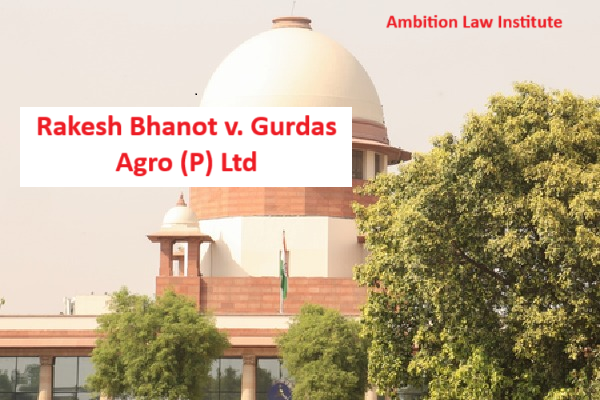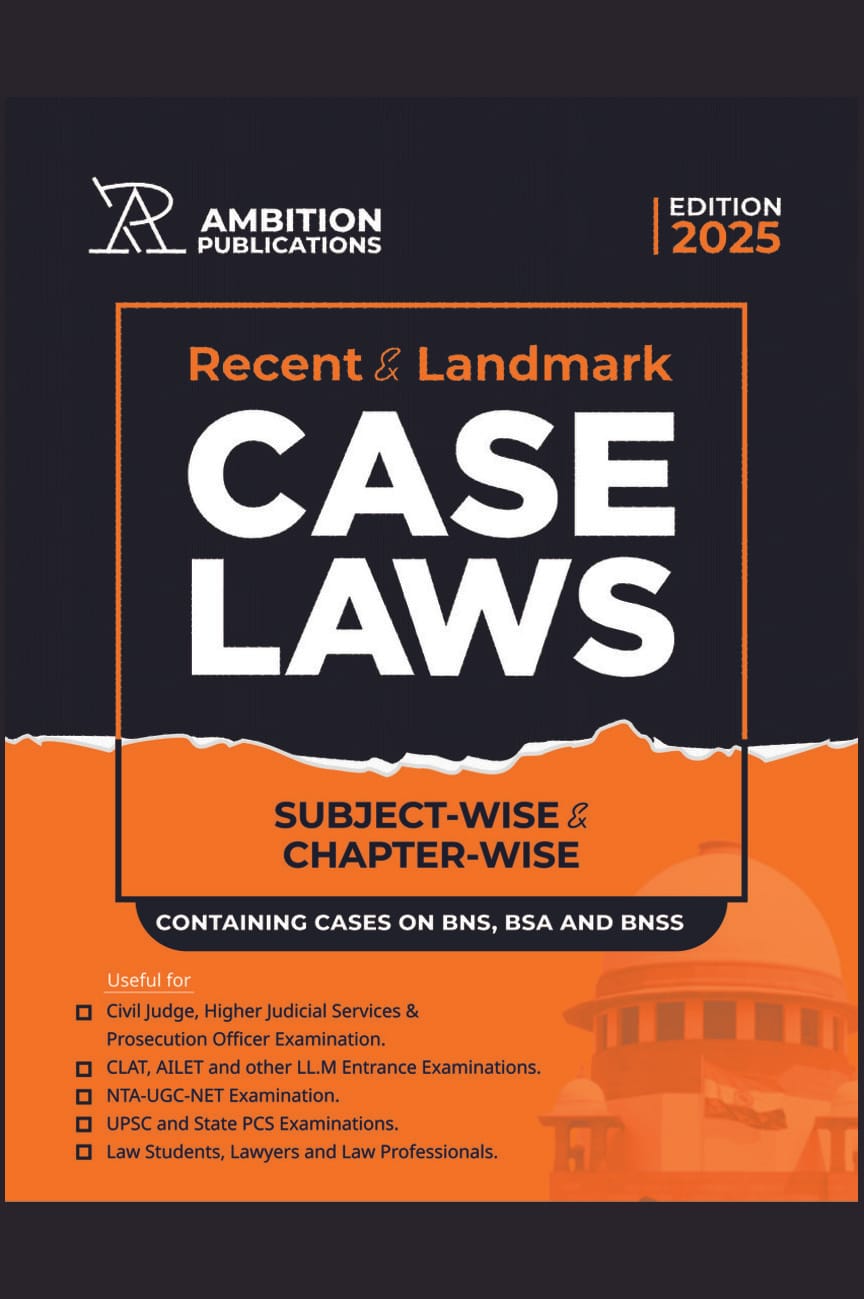Live law updates
Rakesh Bhanot Vs. Gurdas Agro (P) Ltd

Case Name: Rakesh Bhanot vs. Gurdas Agro (P) Ltd
Equivalent Citations: 2025 SCC OnLine SC 728
Court: The Supreme Court of India
Relevant key Sections: Section 138 of the Negotiable Instruments Act, 1881 and Section 94 of the Insolvency and Bankruptcy Code, 2016
Keywords: Moratorium
Facts of the case:
Rakesh Bhanot, along with others, was prosecuted under Section 138 of the Negotiable Instruments Act for issuing dishonored cheques totaling ₹2 crore. While these proceedings were ongoing, Bhanot filed a personal insolvency petition under Section 94 of the IBC, triggering an interim moratorium under Section 96. He sought a stay of the criminal proceedings pending insolvency resolution. Both the trial court and Punjab & Haryana High Court rejected the request. The Supreme Court consolidated multiple appeals and held that the IBC moratorium applies only to civil debt recovery and not to criminal prosecutions under Section 138 and thus upheld the continuation of proceedings.
Issues:
Whether the interim moratorium under Section 96 of the Insolvency and Bankruptcy Code (IBC), 2016, bars criminal proceedings under Section 138 of the Negotiable Instruments Act, 1881.
Observation of the court:
The Supreme Court held that the interim moratorium under Section 96 of the Insolvency and Bankruptcy Code, 2016 does not bar criminal proceedings under Section 138 of the Negotiable Instruments Act, 1881. The Court observed that Section 96 applies only to civil recovery proceedings and not to penal actions. It clarified that insolvency proceedings and cheque dishonour cases serve different legal purposes. As the NI Act aims to penalize financial dishonesty, the filing of a personal insolvency petition cannot be used to avoid criminal liability for dishonoured cheques.
Ratio of the Case:
The Supreme Court ruled that the interim moratorium under Section 96 of the Insolvency and Bankruptcy Code, 2016, which is triggered upon filing an insolvency application by an individual does not bar criminal proceedings under Section 138 of the Negotiable Instruments Act, 1881. The Court held that proceedings under Section 138 are penal in nature, aimed at punishing the dishonour of cheques, and not merely for the recovery of debt. Therefore, such proceedings are not covered by the phrase “legal proceedings in respect of any debt” under Section 96 of the IBC.




